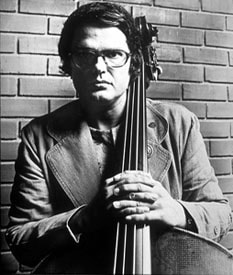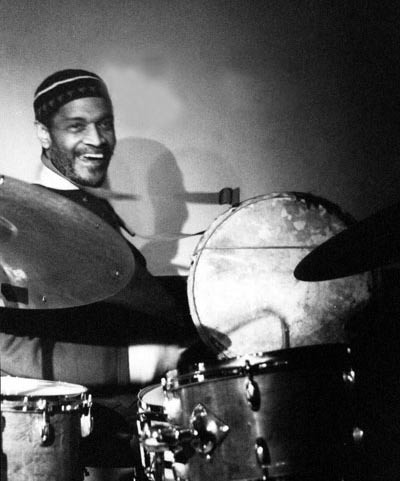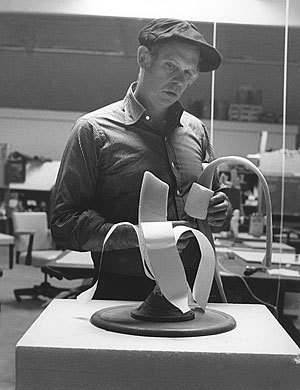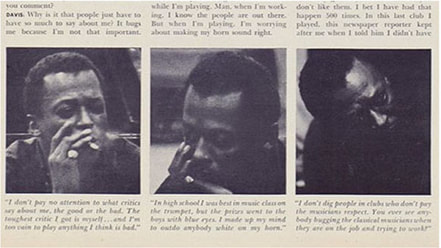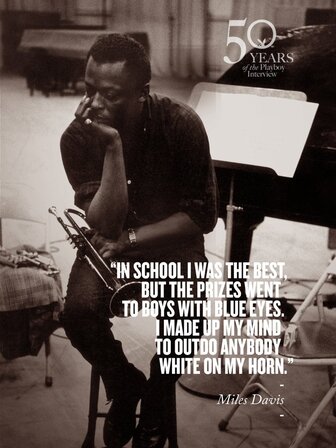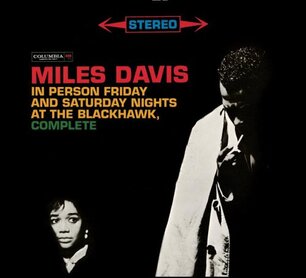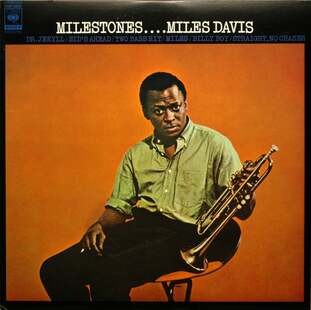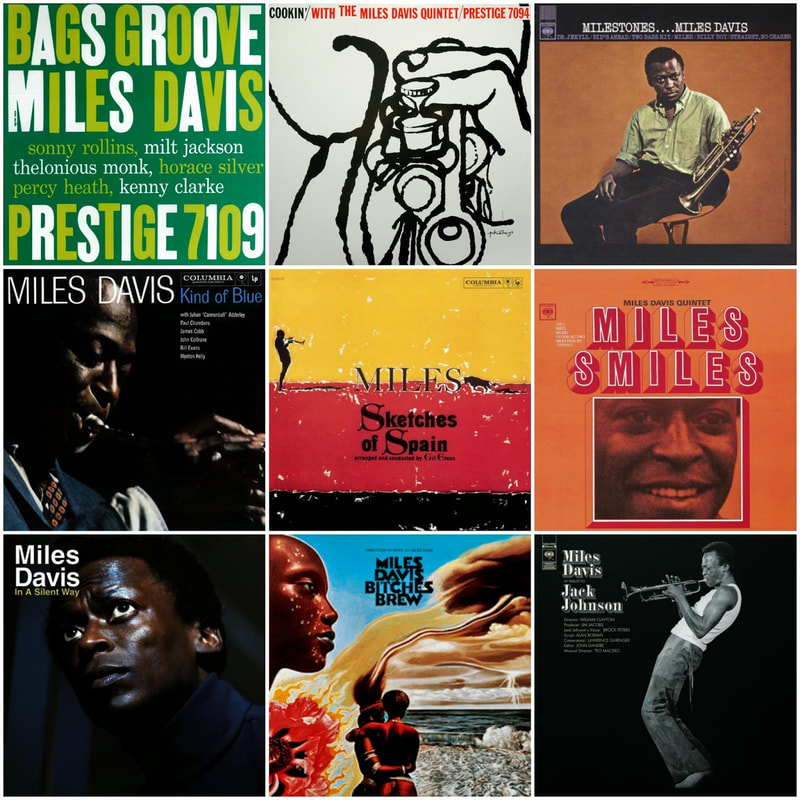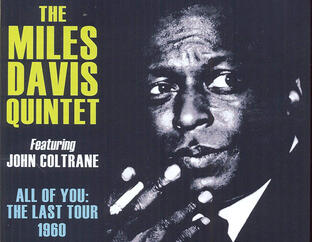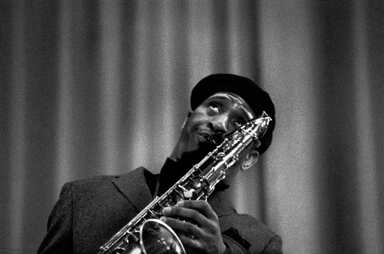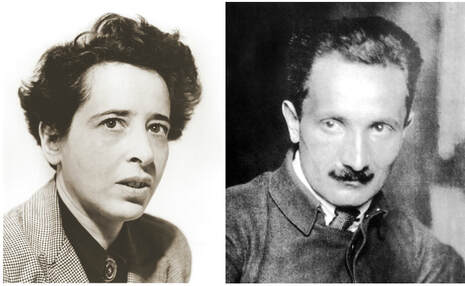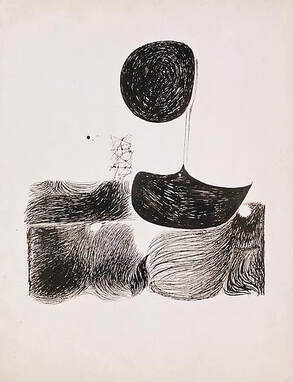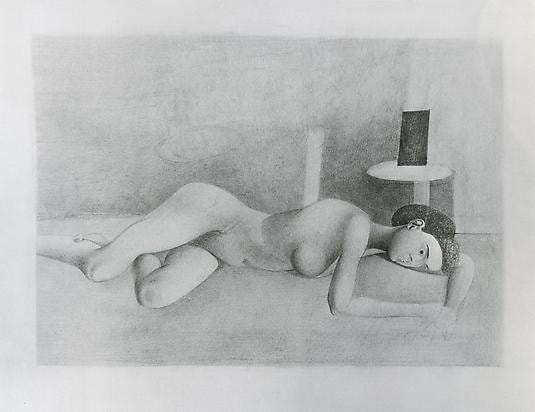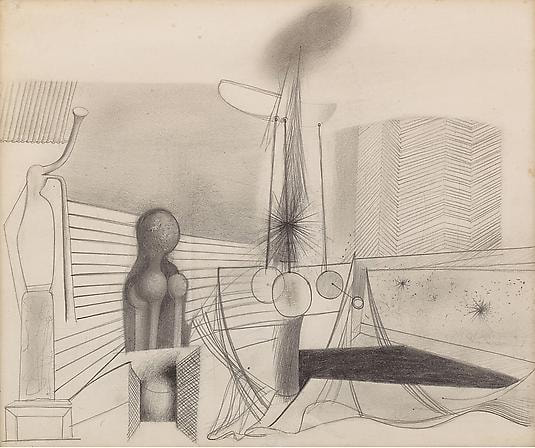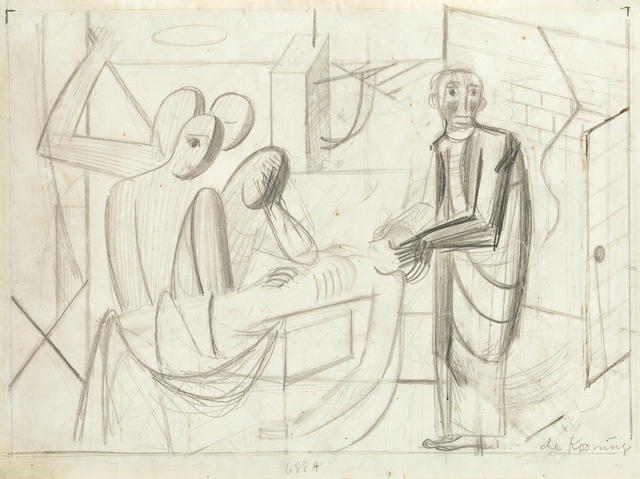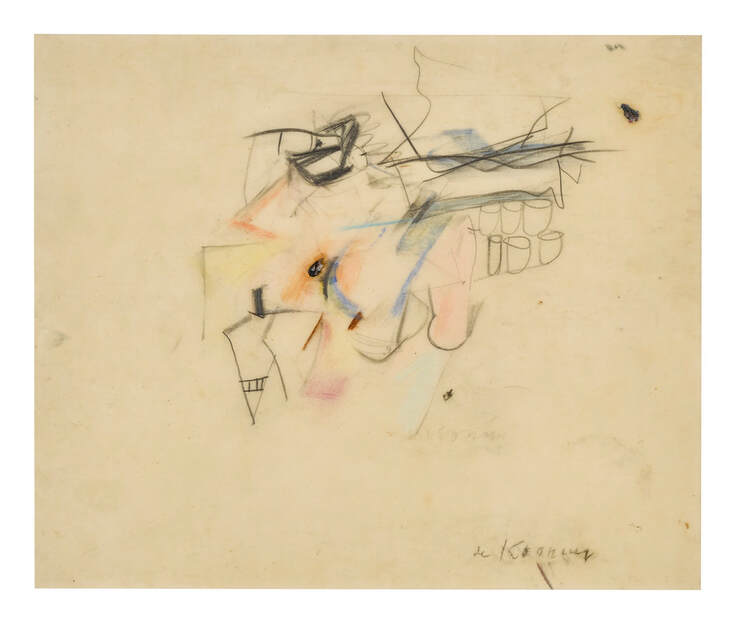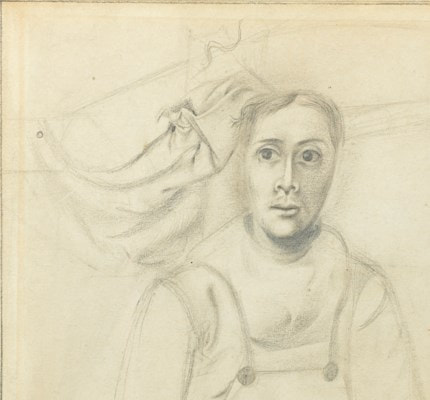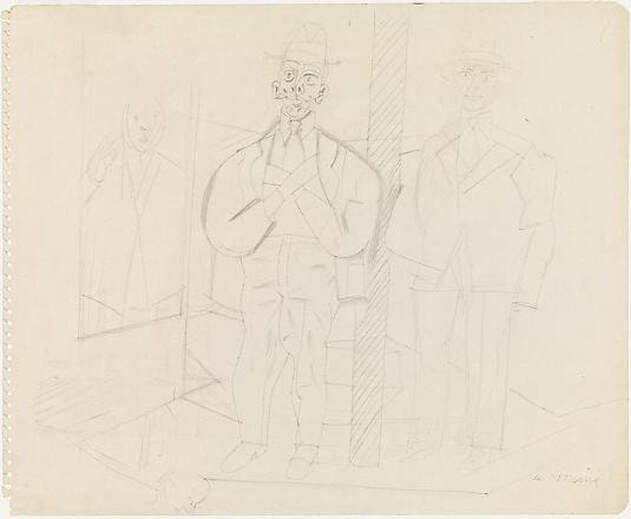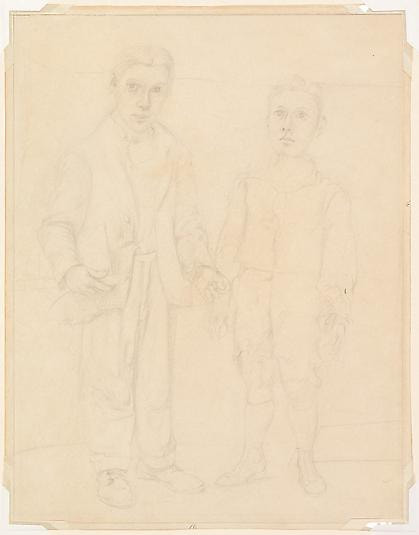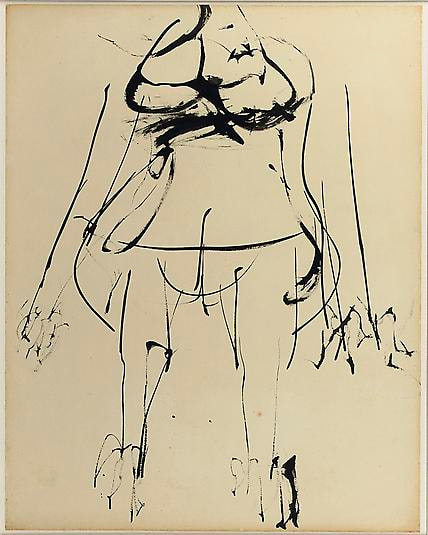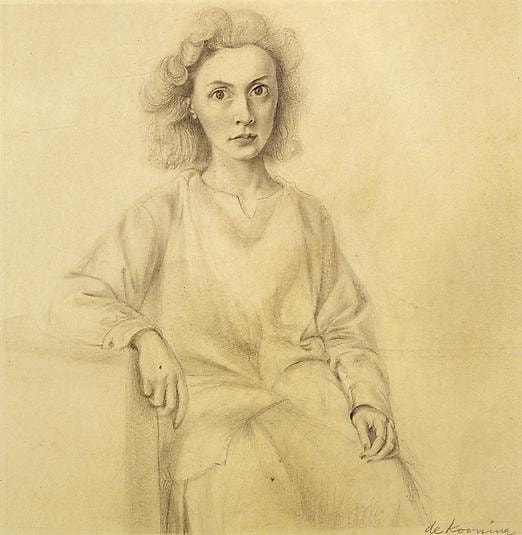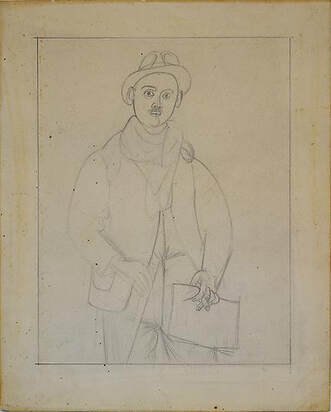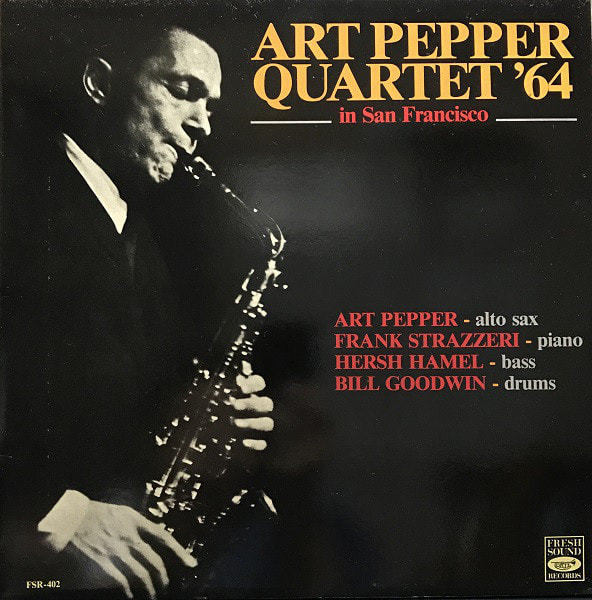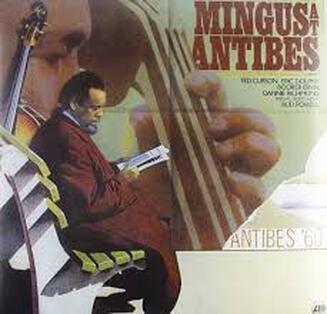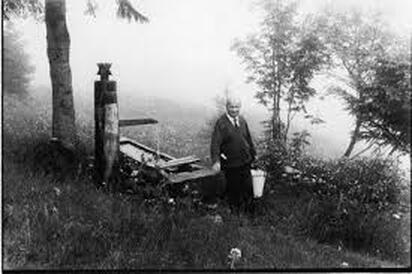
Pianist Michael Weiss: "Griff was fun to be around. He listened closely to what the other musicians played and enjoyed listening to the struggle. His eyes would light up, and he'd smile that big smile when he heard me wrestle with something. He was along for the ride. Although he was deadly serious about making music on the bandstand, playing jazz for him was a positive, joyous experience. That feeling spread to everyone in the audience. He had the people, all the time."

13-Nov.-2020
HANNAH ARENDT, INTERVIEW WITH FRENCH WRITER ROGER ERRERA (Office de Radiodiffusion-Télévision Française, July 1974)
Arendt was interviewed by Errera in Octobre 1973. Recorded over several days, the interviews were worked into a 50-minute episode directed by Jean-Claude
Lubtchansky and included on the series Un Certain Regard the following year. Here is a link to the full transcript of that interview: http://www.hannaharendt.net/index.php/han/article/viewFile/190/313
ON TOTALITARIANISM: "Totalitarianism begins in contempt for what you have. The second step is the notion: “Things must change—no matter how, Anything is better than what we have.” Totalitarian rulers organize this kind of mass sentiment, and by organizing it articulate it, and by articulating it make the people somehow love it. They were told before, thou shalt not kill; and they didn’t kill. Now they are told, thou shalt kill; and although they think it’s very difficult to kill, they do it because it’s now part of the code of behavior. They learn whom to kill and how to kill and how to do it together. This is the much talked about Gleichschaltung—the coordination process. You are coordinated not with the powers that be, but with your neighbor—coordinated with the majority. But instead of communicating with the other you are now glued to him. And you feel of course marvelous. Totalitarianism appeals to the very dangerous emotional needs of people who live in complete isolation and in fear of one another."
ON LIES: "The moment we no longer have a free press, anything can happen. What makes it possible for a totalitarian or any other dictatorship to rule is that people are not informed; how can you have an opinion if you are not informed? If everybody always lies to you, the consequence is not that you believe the lies, but rather that nobody believes anything any longer. This is because lies, by their very nature, have to be changed, and a lying government has constantly to rewrite its own history. On the receiving end you get not only one lie—a lie which you could go on for the rest of your days—but you get a great number of lies, depending on how the political wind blows. And a people that no longer can believe anything cannot make up its mind. It is deprived not only of its capacity to act but also of its capacity to think and to judge. And with such a people you can then do what you please."
HANNAH ARENDT, INTERVIEW WITH FRENCH WRITER ROGER ERRERA (Office de Radiodiffusion-Télévision Française, July 1974)
Arendt was interviewed by Errera in Octobre 1973. Recorded over several days, the interviews were worked into a 50-minute episode directed by Jean-Claude
Lubtchansky and included on the series Un Certain Regard the following year. Here is a link to the full transcript of that interview: http://www.hannaharendt.net/index.php/han/article/viewFile/190/313
ON TOTALITARIANISM: "Totalitarianism begins in contempt for what you have. The second step is the notion: “Things must change—no matter how, Anything is better than what we have.” Totalitarian rulers organize this kind of mass sentiment, and by organizing it articulate it, and by articulating it make the people somehow love it. They were told before, thou shalt not kill; and they didn’t kill. Now they are told, thou shalt kill; and although they think it’s very difficult to kill, they do it because it’s now part of the code of behavior. They learn whom to kill and how to kill and how to do it together. This is the much talked about Gleichschaltung—the coordination process. You are coordinated not with the powers that be, but with your neighbor—coordinated with the majority. But instead of communicating with the other you are now glued to him. And you feel of course marvelous. Totalitarianism appeals to the very dangerous emotional needs of people who live in complete isolation and in fear of one another."
ON LIES: "The moment we no longer have a free press, anything can happen. What makes it possible for a totalitarian or any other dictatorship to rule is that people are not informed; how can you have an opinion if you are not informed? If everybody always lies to you, the consequence is not that you believe the lies, but rather that nobody believes anything any longer. This is because lies, by their very nature, have to be changed, and a lying government has constantly to rewrite its own history. On the receiving end you get not only one lie—a lie which you could go on for the rest of your days—but you get a great number of lies, depending on how the political wind blows. And a people that no longer can believe anything cannot make up its mind. It is deprived not only of its capacity to act but also of its capacity to think and to judge. And with such a people you can then do what you please."
Martin Heidegger, Hannah Arendt and the Politics of Remembrance
(Jeffrey Barrash, International Journal of Philosophical Studies)
https://www.researchgate.net/publication/232983595_Martin_Heidegger_Hannah_Arendt_and_the_Politics_of_Remembrance
(Jeffrey Barrash, International Journal of Philosophical Studies)
https://www.researchgate.net/publication/232983595_Martin_Heidegger_Hannah_Arendt_and_the_Politics_of_Remembrance

ON CONTINGENCY AND HISTORY: "HistoryThe main characteristic of any event is that it has not been foreseen. We don’t know the future but everybody acts into the future. Nobody knows what he is doing because the future is being done, action is being done by a “we” and not an “I.” Only if I were the only one acting could I foretell the consequences of what I’m doing. What actually happens is entirely contingent, and contingency is indeed one of the biggest factors in all history. Nobody knows what is going to happen because so much depends on an enormous number of variables, on simple hazard. On the other hand if you look at history retrospectively, then, even though it was contingent, you can tell a story that makes sense…. Jewish history, for example, in fact had its ups and downs, its, enmities and its friendships, as every history of all people has. The notion that there is one unilinear history is of course false. But if you look at it after the experience of Auschwitz it looks as though all of history—or at least history since the Middle Ages—had no other alm than Auschwitz…. This, is the real problem of every philosophy of history how is it possible that in retrospect it always looks as though it couldn’t have happened otherwise?"
ON FACTS AND THEORIES: "Facts and TheoriesA good example of the kind of scientific mentality that overwhelms all other insights is the “domino theory.” The fact is that very few of the sophisticated intellectuals who wrote the Pentagon Papers believed in this theory. Yet everything they did was based on this assumption—not because they were liars, or because they wanted to please their superiors, but because it gave them a framework within which they could work. They took this framework even though they knew—and though every intelligence report and every factual analysis proved to them every morning—that these assumptions were simply factually wrong. They took it because they didn’t have any other framework. People find such theories in order to get rid of contingency and unexpectedness. Good old Hegel once said that all philosophical contemplation serves only to eliminate the accidental. A fact has to be witnessed by eyewitnesses who are not the best of witnesses; no fact is beyond doubt. But that two and two are four is somehow beyond doubt. And the theories produced in the Pentagon were all much more plausible than the facts of what actually happened."
ON JEWS: "The “giftedness”—so to speak—of a certain part at least of the Jewish people is a historical problem, a problem of the first order for the historians. I can risk a speculative explanation: we are the only people, the only European people, who have survived from antiquity pretty much intact. That means we have kept our identity, and it means we are the only people who have never known analphabetism. We were always literate because you cannot be a Jew without being literate. The women were less literate than the men but even they were much more literate than their counterparts elsewhere. Not only the elite knew how to read but every Jew had to read—the whole people, in all its classes and on all levels of giftedness and intelligence."
ON FACTS AND THEORIES: "Facts and TheoriesA good example of the kind of scientific mentality that overwhelms all other insights is the “domino theory.” The fact is that very few of the sophisticated intellectuals who wrote the Pentagon Papers believed in this theory. Yet everything they did was based on this assumption—not because they were liars, or because they wanted to please their superiors, but because it gave them a framework within which they could work. They took this framework even though they knew—and though every intelligence report and every factual analysis proved to them every morning—that these assumptions were simply factually wrong. They took it because they didn’t have any other framework. People find such theories in order to get rid of contingency and unexpectedness. Good old Hegel once said that all philosophical contemplation serves only to eliminate the accidental. A fact has to be witnessed by eyewitnesses who are not the best of witnesses; no fact is beyond doubt. But that two and two are four is somehow beyond doubt. And the theories produced in the Pentagon were all much more plausible than the facts of what actually happened."
ON JEWS: "The “giftedness”—so to speak—of a certain part at least of the Jewish people is a historical problem, a problem of the first order for the historians. I can risk a speculative explanation: we are the only people, the only European people, who have survived from antiquity pretty much intact. That means we have kept our identity, and it means we are the only people who have never known analphabetism. We were always literate because you cannot be a Jew without being literate. The women were less literate than the men but even they were much more literate than their counterparts elsewhere. Not only the elite knew how to read but every Jew had to read—the whole people, in all its classes and on all levels of giftedness and intelligence."
 Willem de Kooning and John Kiesler (Irving Penn, 1960) Willem de Kooning and John Kiesler (Irving Penn, 1960)
07-Nov.-2020
WILLEM DE KOONING (1904-1997) - Drawings (1938 - 1954) ''You know, Bill's parents divorced when he was 3, and he was given to his father for custody. Well, his mother grabbed him and took him home. When the father got him back, she grabbed him again. That lady was formidable. She ran a bar and a restaurant frequented by sailors. Bill says she was a hysteric. If he laughed at her, or she got angry, she would grab a knife and raise it as though she was going to kill herself, yelling, 'Cora cannot stand this a moment longer!' '' There was a childhood incident in Rotterdam - being thrown into a sewer by some boys, being rescued from death by an old woman, an encrusted memory of terror and humiliation, and of Woman as salvation in the end. In some way, Elaine felt sure, the episode contributed to the violent polarity of his feelings. ''So that ferocious woman he painted didn't come from living with me. It began when he was 3 years old.'' The lives of great artists often seem haunted by psychic demons that can drive them to heights of achievement or to depths of despair, or to both at the same time. In de Kooning's circle of friends, the self-destructive element vied tragically with the creative. Gorky was a suicide; so was Rothko. Pollock's end almost suggested a courting of death. Whatever the dark underside of de Kooning's genius, the torments he suffered took a heavy toll. The escape was into alcohol. The disastrous effect of that became apparent after his marriage fell apart, and he and Elaine were separated in 1955. He began to live with Joan Ward, a commercial artist, who bore him his first and only child in 1956. Three years later, he left for Italy with Ruth Kligman. That was when I met him. By this time, he was having blackouts from his periodic benders, and an Italian doctor warned him that his drinking might affect his nervous system. -The Indomitable de Kooning, by Curtis Bill Pepper (|The New York Times Magazine, Nov. 20, 1983) https://www.nytimes.com/1983/11/20/magazine/the-indomitable-de-kooning.html |
The Willem de Kooning Foundation
790 Madison Avenue
Room 301
New York, NY 10065
790 Madison Avenue
Room 301
New York, NY 10065
06-Nov.-2020
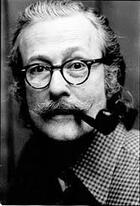
Art Pepper Quartet at JAZZ CASUAL (Feat.: Strazzeri, Hamel, & Goodwin, 1964) JAZZ CASUAL, May 9, 1964 Jazz author Ralph Gleason hosted and produced this TV series in San Francisco in the 1960's. Art Pepper, alto sax Frank Strazzeri, piano Hersh Hamel, acoustic double bass Bill Goodwin, drums.
“I guess it's like James Joyce when he was a kid, you know. He hung out with all the great writers of the day, and he was a little kid, like, with tennis shoes on, and they said 'Look at this lame!' They didn't use those words in those days. They said 'God, here comes this nut.' And he told them, 'I'm great!' And he sat with them, and he loved to be with them, and it ended up that he was great.” Art Pepper, Straight Life: The Story Of Art Pepper |
|
|
02-Nov.-2020
Charles Mingus, Eric Dolphy and Bud Powell live at The Antibes Jazz Festival (1960) Alto Saxophone – Eric Dolphy Bass – Charles Mingus Drums – Dannie Richmond Piano - Bud Powell Tenor Saxophone – Booker Ervin Trumpet – Ted Curson On “I’ll Remember April,” Bud Powell joins on piano. Recorded live by Barclay Studios for Atlantic Records at the Antibes Jazz Festival, Juan-les-Pins, France, July 13, 1960. "This is one of the great Mingus albums. It was recorded live at the Antibes Jazz Festival in 1960 with a group many listeners feel was Mingus’ best, during one of the bassist/composer’s most productive and boundary-stretching periods. At a time when Ornette Coleman’s free jazz was just beginning to be heard and the avant-garde movement which would follow his example was still gestating, Mingus and his musicians, particularly the incandescent Eric Dolphy, were proposing a brand of freedom built on black folk forms and the skeletal remains of popular song structures. This album captures their freedom-with-order, which was to become a principal influence on Anthony Braxton, the Art Ensemble of Chicago, and the other structuralists of the Midwestern avante-garde almost ten years later, at a peak of interactive intensity. There is nothing quite like it in the rest of the Mingus discography. This is the first complete and authorized release of the Antibes concert anywhere."
Robert Palmer |
Jazz Notes: Agony and empathy of that night at Antibes (by John Sand - The Sydney Morning Herald, July 27, 2020)
|
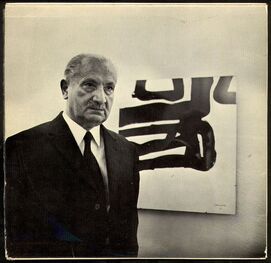
02-Nov.-2020
What Is Philosophy? Martin Heidegger
(Lecture given at Cerisy-la-Salle, Normandy, in August 1955)
With this question we are touching on a theme which is very broad, that is, widespread. Because the theme is broad, it is indefinite. Because it is indefinite, we can treat the theme from the most varied points of view. Thereby, we shall always hit upon something that is valid. But because, in the treatment of this extensive theme, all possible opinions intermingle, we are in danger of having our discussion lack proper cohesion.
Therefore, we must try to define the question more exactly. In this manner we direct the discussion into a definite direction. The discussion is thereby brought into a path. I say—into a path. Thereby we admit that this path is certainly not the only one. It must, in fact, remain open whether the path which I should like to indicate in what follows is, in truth, a path which allows us to pose and answer the question.
If we now assume that we might find a way of determining the question more exactly, then there immediately arises a grave objection to the theme of our discussion. When we ask, "What is Philosophy?" then we are speaking about philosophy. By asking in this way we are obviously taking a stand above and, therefore, outside of philosophy. But the aim of our question is to enter into philosophy, to tarry in it, to "philosophize." The path of our discussion must, therefore, not only have a clear direction, but this direction must at the same time give us the guarantee that we are moving within philosophy and not outside of it and around it.
The path of our discussion must, therefore, be of such a kind and direction that that of which philosophy treats concerns us personally, affects us and, indeed, touches us in our very nature.
But does not philosophy thereby become a matter of affection, emotions, and sentiments?
"With fine sentiments bad literature is made."1 These words of André Gide apply not only to literature but even more to philosophy. Sentiments, even the finest, have no place in philosophy. Sentiments, it is said, are something irrational. Philosophy, on the other hand, is not only something rational but is the actual guardian of reason. In making this assertion we have come unawares to a kind of decision as to what philosophy is. We have already anticipated our question with an answer. Everyone considers the assertion correct that philosophy is a matter of reason. However, this assertion is perhaps a premature and hasty answer to the question, "What is philosophy?" for we can immediately oppose new questions to this answer. What is reason? Where and through whom was it decided what reason is? Has reason constituted itself to be the ruler of philosophy? If so, by what right? If not, whence does it obtain its mission and its role? If what is considered to be reason was first established only by philosophy and within the course of its history, then it is not good judgment to proclaim philosophy in advance as a matter of reason. However, as soon as we cast doubt on the characterization of philosophy as rational behavior, then in the same way it also becomes questionable whether philosophy belongs in the domain of the irrational. For whoever wishes to designate philosophy as irrational thereby takes the rational as a measure of limitation and, what is more, does it in such a way as again to take for granted what reason is.
If, on the other hand, we point out the possibility that that upon which philosophy bears concerns us humans in our essential nature and moves us, then it might be that this being-moved has nothing whatsoever to do with that which is usually called feelings and emotions, in short, the irrational.
From what has been said, we deduce at first only this one thing: greater care is required if we hazard a discussion under the title "What is Philosophy?"
The first thing for us to do is to lead the question to a clearly directed path so that we do not flounder around in either convenient or haphazard conceptions of philosophy. But how are we to find a path by which we can determine our question reliably.
This path which I should now like to point out lies directly before us. And only because it is the nearest at hand is it difficult to find. However, when we have found it, we still move along it awkwardly. We ask, "What is Philosophy?" We have uttered the word "philosophy" often enough. If, however, we use the word "philosophy" no longer like a wornout title, if, instead, we hear the word "philosophy" coming from its source, then it sounds thus: φιλόσοφία. Now the word "philosophy" is speaking Greek. The word, as a Greek word, is a path. This path, on the one hand, lies before us,, for the word has long since been spoken, i.e. set forth. On the other hand, it lies behind us, for we have always heard and spoken this word. Accordingly, the Greek word φιλόσοφία is a path along which we are traveling. Yet we have only a vague knowledge of this path although we possess and can spread much historical information about Greek philosophy.
The word φιλόσοφία tells us that philosophy is something which, first of all, determines the existence of the Greek world. Not only that—φιλόσοφία also determines the innermost basic feature of our Western-European history. The often heard expression "Western-European philosophy" is, in truth, a tautology. Why? Because philosophy is Greek in its nature; Greek, in this instance, means that in origin the nature of philosophy is of such a kind that it first appropriated the Greek world, and only it, in order to unfold.
However, the originally Greek nature of philosophy, in the era of its modern European sway, has been guided and ruled by Christian conceptions. The dominance of these conceptions was mediated by the Middle Ages. At the same time, one cannot say that philosophy thereby became Christian, that is, became a matter of belief in revelation and the authority of the Church. The statement that philosophy is in its nature Greek says nothing more than that the West and Europe, and only these, are, in the innermost course of their history, originally "philosophical." This is attested by the rise and dominance of the sciences. Because they stem from the innermost Western-European course of history, that is, the philosophical, consequently they are able, today, to put a specific imprint on the history of mankind upon the whole earth.
Let us consider for a moment what it means that an era in the history of mankind is characterized as the "atomic age." The atomic energy discovered and liberated by the sciences is represented as that force which is to determine the course of history. Indeed, there would never have been any sciences if philosophy had not preceded them and proceeded. But philosophy is not ἡ φιλόσοφία. This Greek binds our discussion to an historical tradition. Because this tradition is of a unique kind, it is also unique in meaning. This tradition which bears the Greek name φιλόσοφία, and which is labeled for us with the historical word φιλόσοφία, reveals the direction of a path on which we ask, "What is Philosophy?" Tradition does not surrender us to a constraint by what is past and irrevocable. Surrendering is a delivering into the freedom of discussion with what has been. If we truly hear the word and reflect upon what we have heard, the name "philosophy" summons us into the history of the Greek origin of philosophy. The word φιλόσοφία appears, as it were, on the birth certificate of our own history; we may even say on the birth certificate of the contemporary epoch of world history which is called the atomic age. That is why we can ask the question, "What is Philosophy?" only if we enter into a discussion with the thinking of the Greek world.
But not only what is in question—philosophy—is Greek in origin, but how we question, the manner in which we question even today, is Greek.
We ask, "what is that?" In Greek this sounds τί ἐστιν. The question of what something is, however, has more than one meaning. We can ask, "what is that over there in the distance?" We receive the answer, "a tree." The answer consists in the fact that we name a thing which we do not clearly recognise.
We can, however, ask further, "what is that which we call a 'tree'?" With the question now posited we are already approaching the Greek τί ἐστιν. It is this form of questioning which Socrates, Plato, and Aristotle developed. They ask, for example, "What is the beautiful? What is knowledge? What is Nature? What is movement?"
Now we must, however, be careful that in the question just mentioned not only a more exact delimitation is sought of what Nature, movement, or beauty is, but also that, at the same time, an interpretation is given of what the "what" means, in what sense the τί is to be understood. That which "what" means is called the quid est, τὸ quid, the quiddity, the whatness. However, the quiddity is determined differently in the various periods of philosophy. Thus, for example, the philosophy of Plato is a specific interpretation of what the τί signifies, namely the ἰδέα. That we mean the "idea" when we ask about the τί and the the quid is by no means to be taken as a matter of course. Aristotle gives an interpretation of the τί different from that of Plato. Kant gives another interpretation of the τί, Hegel still another. That which is asked each time by means of the clues of the τί, the quid, the "what," is to be newly determined each time. In every case when, in regard to philosophy, we ask, "what is that?" then we are asking an originally Greek question.
Let us bear well in mind that both the theme of our question—"philosophy"—as well as the way in which we ask "what is that...?" are Greek in origin. We ourselves belong to this origin even when we do not mention the word "philosophy." We are peculiarly summoned back into this source and are re-claimed for and by it as soon as we not only utter the words of the question, "What is Philosophy?" but reflect upon its meaning. [The question "What is Philosophy?" is not a question which directs a kind of knowledge towards itself (philosophy of philosophy). Nor is it an historical question which is interested in determining how that which is called "philosophy" began and developed. The question is an historical, that means, a fate-full question. Even more—it is not a it is the historical question of our Western-European actuality.]
If we enter into the total and original meaning of the question, "What is Philosophy?" then our questioning has, through its historical origin, found a direction into an historical future. We have found a path. It leads from the actuality of the Greek world down to us, if not, indeed, beyond us. We are—if we persist in this question—traveling on a clearly indicated path. Nevertheless, we still have no guarantee thereby that we are immediately enabled to pursue this path in the right way. We cannot even determine at once at which point on this path we are standing today. For a long time we have been accustomed to characterize the question of what something is as a question about its nature. The question about the nature of something awakens at those times when that, whose nature is being questioned, has become obscure and confused, when at the same time the relationship of men to what is being questioned has become uncertain or has even been shattered.
The question of our discussion concerns the nature of philosophy. If this question arises from a need and is not to remain only a hypothetical question for the purpose of making conversation, then philosophy as philosophy must have become worthy of question. Obviously we can indicate this only if we have already taken a look into philosophy. In order to do this we must know beforehand what philosophy is. Thus, in a strange manner, we are being chased around in a circle. Assuming that we might not be able to escape immediately out of the ring of this circle, we still are permitted to look at the circle. In which direction should our glance turn? The Greek word φιλόσοφία indicates the direction.
Here a statement of principle is required. If we listen now and later to the words of the Greek language, then we move into a distinct and distinguished domain. Slowly it will dawn upon our thinking that the Greek language is no mere language like the European languages known to us. The Greek language, and it alone, is λόγος. We shall have to deal with this in greater detail in our discussions. For the time being let it be sufficient to suggest that in the Greek language what is said in it is at the same time in an excellent way what it is called. If we hear a Greek word with a Greek ear we follow its λέγειν, its direct presentation. What it presents is what lies immediately before us. Through the audible Greek word we are directly in the presence of the thing itself, not first in the presence of a mere word sign.
The Greek word φιλόσοφία goes back to the word φιλόσοφος. This word is originally an adjective like φιλάργυρος, loving silver, like φιλότιμος, loving honor. The word φιλόσοφος was presumably coined by Heraklitus. This indicates that for Heraklitus φιλόσοφία did not yet exist. An ἀνὴρ φιλόσοφος is not a "philosophical" man. The Greek adjective φιλόσοφος expresses something completely different from the adjective philosophical. An ἀνὴρ φιλόσοφος is ὅς φιλεῖ τὸ σοφόν, he who loves the σοφόν; φιλεῖν, to love, signifies here, in the heraclitean sense, ὀμολογεῖν, to speak in the way in which λόγος speaks, in correspondence with the λόγος. This correspondence is in accord with the σοφόν. Accordance is ἁρμονία. That one being reciprocally unites itself with another, that both are originally united to each other because they are at each other's disposal—this ἁρμονία is the distinctive feature of φιλεῖν, of "loving" in the Heraclitean sense.
The ἀνὴρ φιλόσοφος loves the σοφόν. What this word means for Heraclitus is hard to translate. But we can explain it according to Heraclitus' own interpretation. According to this τὸ σοφόν means, Εν Πάντα, "One (is) all." "All" means here, Πάντα τὰ ὄντα, the whole, the totality of being. Εν, one, means, the one, the unique, the all-uniting. But all being is united in Being. The σοφόν says—all being is in Being. To put it more pointedly—being is Being. In this instance "is" speaks transitively and means approximately "gathered together," "collected." Being gathers being together in so far as it is being. Being is the gathering together—Λόγος.
All being is in Being. To hear such a thing sounds trivial to our ear, if not, indeed, offensive, for no one needs to bother about the fact that being belongs in Being. All the world knows that being is that which is. What else remains for being but to be? And yet, just this fact that being is gathered together in Being, that in the appearance of Being being appears, that astonished the Greeks and first astonished them and them alone. Being [small "b"] in Being—that became the most astonishing thing for the Greeks.
However, even the Greeks had to rescue and protect the astonishingness of this most astonishing thing against the attacks of Sophist reasoning which always had ready for everything an answer which was comprehensible to everyone and which they put on the market. The rescue of the most astonishing thing—being in Being—was accomplished by a few who started off in the direction of this most astonishing thing, that is, the σοφόν. By doing this they became those who strove for the σοφόν and who through their own striving awakened and kept alive among others the yearning for the σοφόν. The loving the σοφόν, that already mentioned harmony with the σοφόν, the ἁρμονία, thus became an ὄρεξις, a striving for the σοφόν. The σοφόν—the being in Being—is now especially sought. Because the loving is no longer an original harmony with the σοφόν but is a particular striving, towards the σοφόν, the loving of the σοφόν becomes "φιλόσοφία." The striving is determined by Eros.
This yearning search for the σοφόν, for the "Εν Πάντα," for the being in Being, now becomes the question, "What is being, in so far as it is?" Only now does thinking become "philosophy." Heraclitus and Parmenides were not yet "philosophers." Why not? Because they were the greater thinkers. "Greater" here does not signify the estimation of an achievement but indicates another dimension of thinking. Heraclitus and Parmenides were "greater" in the sense that they were still in harmony with the Λόγος, that is, with the "Εν Πάντα." The step into "philosophy," prepared for by Sophism, was first accomplished by Socrates and Plato. Then, almost two centuries after Heraclitus, Aristotle charcterized this step by the folowing statement: "καὶ δὴ καὶ τὸ πάλαι τε καὶ νῦν καὶ ἀεὶ ζητοὐμενον καὶ ἀεὶ ἀπορούμενον, τί τὸ ὄν." (Metaphysics Ζ 1). In translation this reads: "And thus, as was in the past, is now too and will be ever more, that towards which (philosophy) is moving and to which it again and again does not find access, is (the question raised)—what is being? (τί τὸ ὄν)."
Philosophy seeks what being is, in so far as it is. Philosophy is en route to the Being of being, that is, to being with respect to Being. Aristotle explains this by adding in the cited statement to the question τί τὸ ὄν, What if being? the explanation τοῦτο ἐστι τίς ἡ οὐσια; in translation: "This (namely, τί τὸ ὄν) means, what is the Beingness of being?" The Being of being rests in the Beingness. But this—the οὐσια—Plato calls ἰδέα and Aristotle ἐνέργεια.
At the moment, it is not yet necessary to explain more exactly what Aristotle means by ἐνέργεια and to what extent the οὐσία can be determined by the ἐνέργεια. Now it is only important what we note how Aristotle circumscribes philosophy in its nature. In the first book of the Metaphysics he makes the following statement: Philosophy is ἐπιστήμη τῶν πρώτοων ἀρχῶν καὶ αἰτῶν θεωρητική. Episthmh is commonly translated as "science." This is misleading because we are only too apt to let the modern conception of "science" infiltrate. The translation of ἐπιστήμη by "science" is also wrong if we understand "science" in the philosophical sense of Fichte, Schelling and Hegel. The word ἐπιστήμη is derived from the participle ἐπιστάμενος. That is what a man is called when he is competent and apt in something (competent in the sense of aptitude). Philosophy is the ἐπιστήμη τις, a kind of competence, θεωρητική, which is capable of θεωρείν, that is, of being on the lookout for something and of seizing and holding in its glance what it is on the lookout for. Philosophy therefore is ἐπιστήμη θεωρητική. But what is it that it seizes in its glance?
Aristotle says what it is when he names the πρῶται ἀρχαι καὶ αἰτίαι. This may be translated as "the first principles and causes" namely, of being. The first principles and causes thus constitute the Being of being. After two-and-a-half thousand years it would seem to be about time to consider what the Being of being has to do with such things as "principles" and "causes."
In what sense is Being conceived that such things as "principle" and "cause" are qualified to set their seal upon beings and take possession of them?
But now we note something else. The phrase of Aristotle cited above tells us in what direction that which since Plato has been called "philosophy" is going. Philosophy is a kind of aptness which makes it possible to see being in respect to what it is in so far as it is being.
What Is Philosophy? Martin Heidegger
(Lecture given at Cerisy-la-Salle, Normandy, in August 1955)
With this question we are touching on a theme which is very broad, that is, widespread. Because the theme is broad, it is indefinite. Because it is indefinite, we can treat the theme from the most varied points of view. Thereby, we shall always hit upon something that is valid. But because, in the treatment of this extensive theme, all possible opinions intermingle, we are in danger of having our discussion lack proper cohesion.
Therefore, we must try to define the question more exactly. In this manner we direct the discussion into a definite direction. The discussion is thereby brought into a path. I say—into a path. Thereby we admit that this path is certainly not the only one. It must, in fact, remain open whether the path which I should like to indicate in what follows is, in truth, a path which allows us to pose and answer the question.
If we now assume that we might find a way of determining the question more exactly, then there immediately arises a grave objection to the theme of our discussion. When we ask, "What is Philosophy?" then we are speaking about philosophy. By asking in this way we are obviously taking a stand above and, therefore, outside of philosophy. But the aim of our question is to enter into philosophy, to tarry in it, to "philosophize." The path of our discussion must, therefore, not only have a clear direction, but this direction must at the same time give us the guarantee that we are moving within philosophy and not outside of it and around it.
The path of our discussion must, therefore, be of such a kind and direction that that of which philosophy treats concerns us personally, affects us and, indeed, touches us in our very nature.
But does not philosophy thereby become a matter of affection, emotions, and sentiments?
"With fine sentiments bad literature is made."1 These words of André Gide apply not only to literature but even more to philosophy. Sentiments, even the finest, have no place in philosophy. Sentiments, it is said, are something irrational. Philosophy, on the other hand, is not only something rational but is the actual guardian of reason. In making this assertion we have come unawares to a kind of decision as to what philosophy is. We have already anticipated our question with an answer. Everyone considers the assertion correct that philosophy is a matter of reason. However, this assertion is perhaps a premature and hasty answer to the question, "What is philosophy?" for we can immediately oppose new questions to this answer. What is reason? Where and through whom was it decided what reason is? Has reason constituted itself to be the ruler of philosophy? If so, by what right? If not, whence does it obtain its mission and its role? If what is considered to be reason was first established only by philosophy and within the course of its history, then it is not good judgment to proclaim philosophy in advance as a matter of reason. However, as soon as we cast doubt on the characterization of philosophy as rational behavior, then in the same way it also becomes questionable whether philosophy belongs in the domain of the irrational. For whoever wishes to designate philosophy as irrational thereby takes the rational as a measure of limitation and, what is more, does it in such a way as again to take for granted what reason is.
If, on the other hand, we point out the possibility that that upon which philosophy bears concerns us humans in our essential nature and moves us, then it might be that this being-moved has nothing whatsoever to do with that which is usually called feelings and emotions, in short, the irrational.
From what has been said, we deduce at first only this one thing: greater care is required if we hazard a discussion under the title "What is Philosophy?"
The first thing for us to do is to lead the question to a clearly directed path so that we do not flounder around in either convenient or haphazard conceptions of philosophy. But how are we to find a path by which we can determine our question reliably.
This path which I should now like to point out lies directly before us. And only because it is the nearest at hand is it difficult to find. However, when we have found it, we still move along it awkwardly. We ask, "What is Philosophy?" We have uttered the word "philosophy" often enough. If, however, we use the word "philosophy" no longer like a wornout title, if, instead, we hear the word "philosophy" coming from its source, then it sounds thus: φιλόσοφία. Now the word "philosophy" is speaking Greek. The word, as a Greek word, is a path. This path, on the one hand, lies before us,, for the word has long since been spoken, i.e. set forth. On the other hand, it lies behind us, for we have always heard and spoken this word. Accordingly, the Greek word φιλόσοφία is a path along which we are traveling. Yet we have only a vague knowledge of this path although we possess and can spread much historical information about Greek philosophy.
The word φιλόσοφία tells us that philosophy is something which, first of all, determines the existence of the Greek world. Not only that—φιλόσοφία also determines the innermost basic feature of our Western-European history. The often heard expression "Western-European philosophy" is, in truth, a tautology. Why? Because philosophy is Greek in its nature; Greek, in this instance, means that in origin the nature of philosophy is of such a kind that it first appropriated the Greek world, and only it, in order to unfold.
However, the originally Greek nature of philosophy, in the era of its modern European sway, has been guided and ruled by Christian conceptions. The dominance of these conceptions was mediated by the Middle Ages. At the same time, one cannot say that philosophy thereby became Christian, that is, became a matter of belief in revelation and the authority of the Church. The statement that philosophy is in its nature Greek says nothing more than that the West and Europe, and only these, are, in the innermost course of their history, originally "philosophical." This is attested by the rise and dominance of the sciences. Because they stem from the innermost Western-European course of history, that is, the philosophical, consequently they are able, today, to put a specific imprint on the history of mankind upon the whole earth.
Let us consider for a moment what it means that an era in the history of mankind is characterized as the "atomic age." The atomic energy discovered and liberated by the sciences is represented as that force which is to determine the course of history. Indeed, there would never have been any sciences if philosophy had not preceded them and proceeded. But philosophy is not ἡ φιλόσοφία. This Greek binds our discussion to an historical tradition. Because this tradition is of a unique kind, it is also unique in meaning. This tradition which bears the Greek name φιλόσοφία, and which is labeled for us with the historical word φιλόσοφία, reveals the direction of a path on which we ask, "What is Philosophy?" Tradition does not surrender us to a constraint by what is past and irrevocable. Surrendering is a delivering into the freedom of discussion with what has been. If we truly hear the word and reflect upon what we have heard, the name "philosophy" summons us into the history of the Greek origin of philosophy. The word φιλόσοφία appears, as it were, on the birth certificate of our own history; we may even say on the birth certificate of the contemporary epoch of world history which is called the atomic age. That is why we can ask the question, "What is Philosophy?" only if we enter into a discussion with the thinking of the Greek world.
But not only what is in question—philosophy—is Greek in origin, but how we question, the manner in which we question even today, is Greek.
We ask, "what is that?" In Greek this sounds τί ἐστιν. The question of what something is, however, has more than one meaning. We can ask, "what is that over there in the distance?" We receive the answer, "a tree." The answer consists in the fact that we name a thing which we do not clearly recognise.
We can, however, ask further, "what is that which we call a 'tree'?" With the question now posited we are already approaching the Greek τί ἐστιν. It is this form of questioning which Socrates, Plato, and Aristotle developed. They ask, for example, "What is the beautiful? What is knowledge? What is Nature? What is movement?"
Now we must, however, be careful that in the question just mentioned not only a more exact delimitation is sought of what Nature, movement, or beauty is, but also that, at the same time, an interpretation is given of what the "what" means, in what sense the τί is to be understood. That which "what" means is called the quid est, τὸ quid, the quiddity, the whatness. However, the quiddity is determined differently in the various periods of philosophy. Thus, for example, the philosophy of Plato is a specific interpretation of what the τί signifies, namely the ἰδέα. That we mean the "idea" when we ask about the τί and the the quid is by no means to be taken as a matter of course. Aristotle gives an interpretation of the τί different from that of Plato. Kant gives another interpretation of the τί, Hegel still another. That which is asked each time by means of the clues of the τί, the quid, the "what," is to be newly determined each time. In every case when, in regard to philosophy, we ask, "what is that?" then we are asking an originally Greek question.
Let us bear well in mind that both the theme of our question—"philosophy"—as well as the way in which we ask "what is that...?" are Greek in origin. We ourselves belong to this origin even when we do not mention the word "philosophy." We are peculiarly summoned back into this source and are re-claimed for and by it as soon as we not only utter the words of the question, "What is Philosophy?" but reflect upon its meaning. [The question "What is Philosophy?" is not a question which directs a kind of knowledge towards itself (philosophy of philosophy). Nor is it an historical question which is interested in determining how that which is called "philosophy" began and developed. The question is an historical, that means, a fate-full question. Even more—it is not a it is the historical question of our Western-European actuality.]
If we enter into the total and original meaning of the question, "What is Philosophy?" then our questioning has, through its historical origin, found a direction into an historical future. We have found a path. It leads from the actuality of the Greek world down to us, if not, indeed, beyond us. We are—if we persist in this question—traveling on a clearly indicated path. Nevertheless, we still have no guarantee thereby that we are immediately enabled to pursue this path in the right way. We cannot even determine at once at which point on this path we are standing today. For a long time we have been accustomed to characterize the question of what something is as a question about its nature. The question about the nature of something awakens at those times when that, whose nature is being questioned, has become obscure and confused, when at the same time the relationship of men to what is being questioned has become uncertain or has even been shattered.
The question of our discussion concerns the nature of philosophy. If this question arises from a need and is not to remain only a hypothetical question for the purpose of making conversation, then philosophy as philosophy must have become worthy of question. Obviously we can indicate this only if we have already taken a look into philosophy. In order to do this we must know beforehand what philosophy is. Thus, in a strange manner, we are being chased around in a circle. Assuming that we might not be able to escape immediately out of the ring of this circle, we still are permitted to look at the circle. In which direction should our glance turn? The Greek word φιλόσοφία indicates the direction.
Here a statement of principle is required. If we listen now and later to the words of the Greek language, then we move into a distinct and distinguished domain. Slowly it will dawn upon our thinking that the Greek language is no mere language like the European languages known to us. The Greek language, and it alone, is λόγος. We shall have to deal with this in greater detail in our discussions. For the time being let it be sufficient to suggest that in the Greek language what is said in it is at the same time in an excellent way what it is called. If we hear a Greek word with a Greek ear we follow its λέγειν, its direct presentation. What it presents is what lies immediately before us. Through the audible Greek word we are directly in the presence of the thing itself, not first in the presence of a mere word sign.
The Greek word φιλόσοφία goes back to the word φιλόσοφος. This word is originally an adjective like φιλάργυρος, loving silver, like φιλότιμος, loving honor. The word φιλόσοφος was presumably coined by Heraklitus. This indicates that for Heraklitus φιλόσοφία did not yet exist. An ἀνὴρ φιλόσοφος is not a "philosophical" man. The Greek adjective φιλόσοφος expresses something completely different from the adjective philosophical. An ἀνὴρ φιλόσοφος is ὅς φιλεῖ τὸ σοφόν, he who loves the σοφόν; φιλεῖν, to love, signifies here, in the heraclitean sense, ὀμολογεῖν, to speak in the way in which λόγος speaks, in correspondence with the λόγος. This correspondence is in accord with the σοφόν. Accordance is ἁρμονία. That one being reciprocally unites itself with another, that both are originally united to each other because they are at each other's disposal—this ἁρμονία is the distinctive feature of φιλεῖν, of "loving" in the Heraclitean sense.
The ἀνὴρ φιλόσοφος loves the σοφόν. What this word means for Heraclitus is hard to translate. But we can explain it according to Heraclitus' own interpretation. According to this τὸ σοφόν means, Εν Πάντα, "One (is) all." "All" means here, Πάντα τὰ ὄντα, the whole, the totality of being. Εν, one, means, the one, the unique, the all-uniting. But all being is united in Being. The σοφόν says—all being is in Being. To put it more pointedly—being is Being. In this instance "is" speaks transitively and means approximately "gathered together," "collected." Being gathers being together in so far as it is being. Being is the gathering together—Λόγος.
All being is in Being. To hear such a thing sounds trivial to our ear, if not, indeed, offensive, for no one needs to bother about the fact that being belongs in Being. All the world knows that being is that which is. What else remains for being but to be? And yet, just this fact that being is gathered together in Being, that in the appearance of Being being appears, that astonished the Greeks and first astonished them and them alone. Being [small "b"] in Being—that became the most astonishing thing for the Greeks.
However, even the Greeks had to rescue and protect the astonishingness of this most astonishing thing against the attacks of Sophist reasoning which always had ready for everything an answer which was comprehensible to everyone and which they put on the market. The rescue of the most astonishing thing—being in Being—was accomplished by a few who started off in the direction of this most astonishing thing, that is, the σοφόν. By doing this they became those who strove for the σοφόν and who through their own striving awakened and kept alive among others the yearning for the σοφόν. The loving the σοφόν, that already mentioned harmony with the σοφόν, the ἁρμονία, thus became an ὄρεξις, a striving for the σοφόν. The σοφόν—the being in Being—is now especially sought. Because the loving is no longer an original harmony with the σοφόν but is a particular striving, towards the σοφόν, the loving of the σοφόν becomes "φιλόσοφία." The striving is determined by Eros.
This yearning search for the σοφόν, for the "Εν Πάντα," for the being in Being, now becomes the question, "What is being, in so far as it is?" Only now does thinking become "philosophy." Heraclitus and Parmenides were not yet "philosophers." Why not? Because they were the greater thinkers. "Greater" here does not signify the estimation of an achievement but indicates another dimension of thinking. Heraclitus and Parmenides were "greater" in the sense that they were still in harmony with the Λόγος, that is, with the "Εν Πάντα." The step into "philosophy," prepared for by Sophism, was first accomplished by Socrates and Plato. Then, almost two centuries after Heraclitus, Aristotle charcterized this step by the folowing statement: "καὶ δὴ καὶ τὸ πάλαι τε καὶ νῦν καὶ ἀεὶ ζητοὐμενον καὶ ἀεὶ ἀπορούμενον, τί τὸ ὄν." (Metaphysics Ζ 1). In translation this reads: "And thus, as was in the past, is now too and will be ever more, that towards which (philosophy) is moving and to which it again and again does not find access, is (the question raised)—what is being? (τί τὸ ὄν)."
Philosophy seeks what being is, in so far as it is. Philosophy is en route to the Being of being, that is, to being with respect to Being. Aristotle explains this by adding in the cited statement to the question τί τὸ ὄν, What if being? the explanation τοῦτο ἐστι τίς ἡ οὐσια; in translation: "This (namely, τί τὸ ὄν) means, what is the Beingness of being?" The Being of being rests in the Beingness. But this—the οὐσια—Plato calls ἰδέα and Aristotle ἐνέργεια.
At the moment, it is not yet necessary to explain more exactly what Aristotle means by ἐνέργεια and to what extent the οὐσία can be determined by the ἐνέργεια. Now it is only important what we note how Aristotle circumscribes philosophy in its nature. In the first book of the Metaphysics he makes the following statement: Philosophy is ἐπιστήμη τῶν πρώτοων ἀρχῶν καὶ αἰτῶν θεωρητική. Episthmh is commonly translated as "science." This is misleading because we are only too apt to let the modern conception of "science" infiltrate. The translation of ἐπιστήμη by "science" is also wrong if we understand "science" in the philosophical sense of Fichte, Schelling and Hegel. The word ἐπιστήμη is derived from the participle ἐπιστάμενος. That is what a man is called when he is competent and apt in something (competent in the sense of aptitude). Philosophy is the ἐπιστήμη τις, a kind of competence, θεωρητική, which is capable of θεωρείν, that is, of being on the lookout for something and of seizing and holding in its glance what it is on the lookout for. Philosophy therefore is ἐπιστήμη θεωρητική. But what is it that it seizes in its glance?
Aristotle says what it is when he names the πρῶται ἀρχαι καὶ αἰτίαι. This may be translated as "the first principles and causes" namely, of being. The first principles and causes thus constitute the Being of being. After two-and-a-half thousand years it would seem to be about time to consider what the Being of being has to do with such things as "principles" and "causes."
In what sense is Being conceived that such things as "principle" and "cause" are qualified to set their seal upon beings and take possession of them?
But now we note something else. The phrase of Aristotle cited above tells us in what direction that which since Plato has been called "philosophy" is going. Philosophy is a kind of aptness which makes it possible to see being in respect to what it is in so far as it is being.
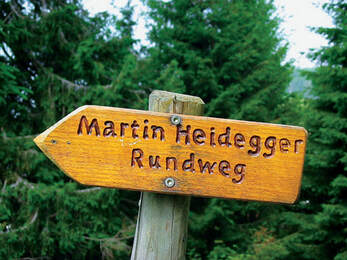 Photo Frédéric Le Mercier.
BEING THERE
On the trail of Heidegger
Leland de la Durantaye
Photo Frédéric Le Mercier.
BEING THERE
On the trail of Heidegger
Leland de la Durantaye
The question of our discussion concerns the nature of philosophy. If this question arises from a need and is not to remain only a hypothetical question for the purpose of making conversation, then philosophy as philosophy must have become worthy of question. Obviously we can indicate this only if we have already taken a look into philosophy. In order to do this we must know beforehand what philosophy is. Thus, in a strange manner, we are being chased around in a circle. Assuming that we might not be able to escape immediately out of the ring of this circle, we still are permitted to look at the circle. In which direction should our glance turn? The Greek word φιλόσοφία indicates the direction.
Here a statement of principle is required. If we listen now and later to the words of the Greek language, then we move into a distinct and distinguished domain. Slowly it will dawn upon our thinking that the Greek language is no mere language like the European languages known to us. The Greek language, and it alone, is λόγος. We shall have to deal with this in greater detail in our discussions. For the time being let it be sufficient to suggest that in the Greek language what is said in it is at the same time in an excellent way what it is called. If we hear a Greek word with a Greek ear we follow its λέγειν, its direct presentation. What it presents is what lies immediately before us. Through the audible Greek word we are directly in the presence of the thing itself, not first in the presence of a mere word sign.
The Greek word φιλόσοφία goes back to the word φιλόσοφος. This word is originally an adjective like φιλάργυρος, loving silver, like φιλότιμος, loving honor. The word φιλόσοφος was presumably coined by Heraklitus. This indicates that for Heraklitus φιλόσοφία did not yet exist. An ἀνὴρ φιλόσοφος is not a "philosophical" man. The Greek adjective φιλόσοφος expresses something completely different from the adjective philosophical. An ἀνὴρ φιλόσοφος is ὅς φιλεῖ τὸ σοφόν, he who loves the σοφόν; φιλεῖν, to love, signifies here, in the heraclitean sense, ὀμολογεῖν, to speak in the way in which λόγος speaks, in correspondence with the λόγος. This correspondence is in accord with the σοφόν. Accordance is ἁρμονία. That one being reciprocally unites itself with another, that both are originally united to each other because they are at each other's disposal—this ἁρμονία is the distinctive feature of φιλεῖν, of "loving" in the Heraclitean sense.
The ἀνὴρ φιλόσοφος loves the σοφόν. What this word means for Heraclitus is hard to translate. But we can explain it according to Heraclitus' own interpretation. According to this τὸ σοφόν means, Εν Πάντα, "One (is) all." "All" means here, Πάντα τὰ ὄντα, the whole, the totality of being. Εν, one, means, the one, the unique, the all-uniting. But all being is united in Being. The σοφόν says—all being is in Being. To put it more pointedly—being is Being. In this instance "is" speaks transitively and means approximately "gathered together," "collected." Being gathers being together in so far as it is being. Being is the gathering together—Λόγος.
All being is in Being. To hear such a thing sounds trivial to our ear, if not, indeed, offensive, for no one needs to bother about the fact that being belongs in Being. All the world knows that being is that which is. What else remains for being but to be? And yet, just this fact that being is gathered together in Being, that in the appearance of Being being appears, that astonished the Greeks and first astonished them and them alone. Being [small "b"] in Being—that became the most astonishing thing for the Greeks.
However, even the Greeks had to rescue and protect the astonishingness of this most astonishing thing against the attacks of Sophist reasoning which always had ready for everything an answer which was comprehensible to everyone and which they put on the market. The rescue of the most astonishing thing—being in Being—was accomplished by a few who started off in the direction of this most astonishing thing, that is, the σοφόν. By doing this they became those who strove for the σοφόν and who through their own striving awakened and kept alive among others the yearning for the σοφόν. The loving the σοφόν, that already mentioned harmony with the σοφόν, the ἁρμονία, thus became an ὄρεξις, a striving for the σοφόν. The σοφόν—the being in Being—is now especially sought. Because the loving is no longer an original harmony with the σοφόν but is a particular striving, towards the σοφόν, the loving of the σοφόν becomes "φιλόσοφία." The striving is determined by Eros.
This yearning search for the σοφόν, for the "Εν Πάντα," for the being in Being, now becomes the question, "What is being, in so far as it is?" Only now does thinking become "philosophy." Heraclitus and Parmenides were not yet "philosophers." Why not? Because they were the greater thinkers. "Greater" here does not signify the estimation of an achievement but indicates another dimension of thinking. Heraclitus and Parmenides were "greater" in the sense that they were still in harmony with the Λόγος, that is, with the "Εν Πάντα." The step into "philosophy," prepared for by Sophism, was first accomplished by Socrates and Plato. Then, almost two centuries after Heraclitus, Aristotle charcterized this step by the folowing statement: "καὶ δὴ καὶ τὸ πάλαι τε καὶ νῦν καὶ ἀεὶ ζητοὐμενον καὶ ἀεὶ ἀπορούμενον, τί τὸ ὄν." (Metaphysics Ζ 1). In translation this reads: "And thus, as was in the past, is now too and will be ever more, that towards which (philosophy) is moving and to which it again and again does not find access, is (the question raised)—what is being? (τί τὸ ὄν)."
Philosophy seeks what being is, in so far as it is. Philosophy is en route to the Being of being, that is, to being with respect to Being. Aristotle explains this by adding in the cited statement to the question τί τὸ ὄν, What if being? the explanation τοῦτο ἐστι τίς ἡ οὐσια; in translation: "This (namely, τί τὸ ὄν) means, what is the Beingness of being?" The Being of being rests in the Beingness. But this—the οὐσια—Plato calls ἰδέα and Aristotle ἐνέργεια.
At the moment, it is not yet necessary to explain more exactly what Aristotle means by ἐνέργεια and to what extent the οὐσία can be determined by the ἐνέργεια. Now it is only important what we note how Aristotle circumscribes philosophy in its nature. In the first book of the Metaphysics he makes the following statement: Philosophy is ἐπιστήμη τῶν πρώτοων ἀρχῶν καὶ αἰτῶν θεωρητική. Episthmh is commonly translated as "science." This is misleading because we are only too apt to let the modern conception of "science" infiltrate. The translation of ἐπιστήμη by "science" is also wrong if we understand "science" in the philosophical sense of Fichte, Schelling and Hegel. The word ἐπιστήμη is derived from the participle ἐπιστάμενος. That is what a man is called when he is competent and apt in something (competent in the sense of aptitude). Philosophy is the ἐπιστήμη τις, a kind of competence, θεωρητική, which is capable of θεωρείν, that is, of being on the lookout for something and of seizing and holding in its glance what it is on the lookout for. Philosophy therefore is ἐπιστήμη θεωρητική. But what is it that it seizes in its glance?
Aristotle says what it is when he names the πρῶται ἀρχαι καὶ αἰτίαι. This may be translated as "the first principles and causes" namely, of being. The first principles and causes thus constitute the Being of being. After two-and-a-half thousand years it would seem to be about time to consider what the Being of being has to do with such things as "principles" and "causes."
In what sense is Being conceived that such things as "principle" and "cause" are qualified to set their seal upon beings and take possession of them?
But now we note something else. The phrase of Aristotle cited above tells us in what direction that which since Plato has been called "philosophy" is going. Philosophy is a kind of aptness which makes it possible to see being in respect to what it is in so far as it is being.
The question which is to give our discussion fruitful unrest and movement and to indicate the direction it is to take, the question, "What is philosophy?" Aristotle has already answered. Therefore, our discussion is no longer necessary.It is at an end before it has begun. The immediate reply to this will be that Aristotle's statement as to what philosophy is can by no means be the only answer to our question. To state it favorably, it is one answer among many others. With the help of the Aristotelian characterization of philosophy one can, to be sure, conceive and interpret both the thinking before Aristotle and Plato, as well as philosophy after the time of Aristotle. However, it will be pointed out with ease that philosophy from Aristotle to Nietzsche, precisely because of these changes throughout their course, has remained the same. For the transformations are the warranty for the kinship in the same.
By saying this we by no means maintain that the Aristotelian definition of philosophy is absolutely valid. Even within the history of Greek thought it is only one particular interpretation of Greek thinking and of the task assigned to it. The Aristotelian characterization of philosophy cannot in any case be transferred back to the thinking of Heraclitus and Parmenides. On the contrary, the Aristotelian definition of philosophy is, to be sure, a free consequence of early thinking and its conclusion. I say "a free consequence" because in no way can it be seen that individual philosophies and epochs of philosophy have emerged from one another in the sense of the necessity of a dialectic process.
What is the result from what has been said for our attempt in a discussion to treat the question, "What is philosophy?" First of all this one thing: we must not adhere only to Aristotle's definition. From this we deduce the second point: we must realize the earlier and later definitions of philosophy. And then? Then, through a comparative abstraction, we shall reduce them to the common denominator of all the definitions. And then? Then we shall arrive at an empty formula which fits every kind of philosophy. And then? Then we shall be as far removed as possible from an answer to our question. Why does it come to this? Because in proceeding thus we are only collecting by historical methodology the definitions at hand and resolving them into a general formula. All of this can, indeed, be carried out with great erudition and the help of correct verifications. In so doing we do not in the least have to enter into philosophy in such a manner as to contemplate the nature of philosophy. In such a manner we acquire manifold, thorough, and even useful knowledge about how philosophy has been presented in the course of history. But on this path we never reach a genuine, that is, a legitimate answer to the question "What is philosophy?" The answer can only be a philosophizing answer which, as a response, philosiphizes in itself. But how can we understand this statement? In which way can an answer, and particularly in so far as it is a response, philosophize? I shall now try provisionally to clarify this by a few suggestions. What is meant will disturb our discussion again and again. It will even be the touchstone to determine whether our discussion may become truly philosophical. This is by no means within our power.
When is the answer to the question, "What is philosophy?" a philosophizing one? When do we philosophize? Obviously only when we enter into a discussion with philosophers. This implies that we talk through with them that about which we speak. This mutual talking through of what always anew peculiarly concerns philosophers as being the Same, that is talking, λέγειν, in the sense of διαλέγεσθαι [conversing], is talking as dialogue. If and when dialogue is necessarily dialectic, we leave open.
It is one thing to determine and describe the opinions of philosophers. It is an entirely different thing to talk through with them what they are saying, and that means, that of which they speak.
Thus, if we assume that the Being of being addresses itself to philosophers to the extent that they state what being is, in so far as it is, then our discussion with philosophers must also be addressed by the Being of being. We must then ourselves, through our thinking, go to meet philosophy on the path it is traveling. Our thinking must co-respond to that which addresses the philosophers. If this co-responding is successful for us, then, in the true sense of the word, we respond to the question "What is philosophy?" The German word antworten [answer to] actually means the same as ent-sprechen [to respond]. The answer to our question is not exhausted in an affirmation which answers to the question by determining what we are to understand by the concept "philosophy." The answer is not a reply (n'est pas une response), the answer is rather the correspondence (la correspondance) which responds to the Being of being. Yet, we should like at the same time to know what constitutes the characteristic feature of the answer in the sense of co-respondence. But everything first depends upon our attaining a corespondence before we set up a theory about it.
The answer to the question, "What is philosophy?" consists in our corresponding to [answering to] that towards which philosophy is on the way. And that is—The Being of being. In such a correspondence we listen from the very outset to that which philosophy has already said to us, philosophy, that is, φιλόσοφία understood in the Greek sense. That is why we attain correspondence, that is, an answer to our question, only when we remain in conversation with that to which the tradition of philosophy delivers us, that is, liberates us. We find the answer to the question, "What is philosophy?" not through historical assertions about the definitions of philosophy but through conversing with that which has been handed down to us as the Being of being.
This path to the answer to our question is not a break with history, no repudiation of history, but is an adoption and transformation of what has been handed down to us. Such an adoption of history is what is meant by the term "destruction." The meaning of this word has been clearly described in Being and Time (§ 6). Destruction does not mean destroying but dismantling, liquidating, putting to one side the merely historical assertions about the history of philosophy. Destruction means—to open our ears, to make ourselves free for what speaks to us in tradition and the Being of being. By listening to this interpellation we attain the correspondence.
But while we are saying this, a doubt has already made itself felt. It is this—must we first make an effort to reach a correspondence with the Being of being? Are we, humans, not always already in such a correspondence, and, what is more, not only de facto, but by virtue of our nature? Does not this correspondence constitute the fundamental trait of our nature?
This is, indeed, the case. But if this is the case, then we can no longer say that we first have to attain this correspondence. And yet we are right in saying so. For, to be sure, although we do remain always and everywhere in correspondence to the Being of being, we, nevertheless, rarely pay attention to the appeal of Being. The correspondence to the Being of being does, to be sure, always remain our abode. But only at times does it become an unfolding attitude specifically adopted by us. Only when this happens do we really correspond to that which concerns philosophy which is on the way towards the Being of being. Philosophy is the correspondence to the Being of being, but not until, and only when, the correspondence is actually fulfilled and thereby unfolds itself and expands this unfoldment. This correspondence occurs in different ways according to how the appeal of Being speaks, according to whether it is heard or not heard, and according to whether what is heard is said or is kept silent. Our discussion can result in opportunities to reflect upon it.
Now I shall only try to express a foreward to the discussion. I should like to turn the discussion back to what we touched upon in connection with André Gide's words about "fine sentiments." Φιλόσοφία is the expressly accomplished correspondence which speaks in so far as it considers the appeal of the Being of being. The correspondence listens to the voice of the appeal. What appeals to us as the voice of Being evokes our correspondence. "Correspondence" then means: being de-termined, être disposé by that which comes from the Being of being. Dis-posé here means literally set-apart, cleared, and thereby placed in relationship to what is. Being as such determines speaking in such a way that language is attuned (accorder) to the Being of being. Correspondence is necessary and is always attuned, and not just accidentally and occaisionally. It is in an attunement. And only on the basis of the attunement (disposition) does the language of correspondence obtain its precision, its tuning.
As something tuned and attuned, correspondence really exists in a tuning. Through it our attitude is adjusted sometimes in this, sometimes in that way. The tuning understood in this sense is not music of accidentally emerging feelings which only accompany the correspondence. If we characterize philosophy as tuned correspondence, then we by no means want to surrender thinking to the accidental changes and vaccilations of sentiments. It is rather solely a question of pointing out that every precision of language is grounded in a disposition of correspondence, of correspondence, I say, in heeding the appeal.
Above all, however the reference to the essential disposition of correspondence is not a modern invention. The Greek thinkers, Plato and Aristotle, already drew attention to the fact that philosophy and philosophizing belong in the dimension of man which we call tuning(in the sense of tuning and attunement).
Plato says (Theaetetus): μάλα γὰρ φιλοσόφου τοῦτο τὸ πάθος, τὸ θαθμάζειν. οὐ γὰρ ἄλλὴ φιλοσοφίας ἢ αύτη. "Very much is this especially the πάθος of a philosopher, namely, to be astonished; for there is no other determining point of departure for philosophy than this."
Astonishment, as πάθος, is the ἀρχή [the beginning] of philosophy. We must understand the Greek word ἀρχή in its fullest sense. It names that from which something proceeds. But this "from where" is not left behind in the process of going out, but the beginning rather becomes that which the verb ἄρχειν expresses, that which governs. The πάθος of astonishment thus does not simply stand at the beginning of philosophy, as, for example, the washing of his hands precedes the surgeon's operation. Astonishment carries and pervades philosophy.
Aristotle says the same thing (Metaphysics): διὰ γὰρ τὸ θαθμαάζειν οἰ ἄνθρωποι και νῦν και τὸ πρῶτον ἤρξαντο φιλοσοφεῖν. "Through astonishment men have reached now, as well as at first, the determining path of philosophizing" (that from which philosophizing emanates and that which altogether determines the course of philosophizing).
It would be very superficial and, above all, very un-Greek, if we would believe that Plato and Aristotle are only determining here that astonishment is the cause of philosophizing. If they were of this opinion, that would mean that at some time or other men were astonished especially about being and that it is and what it is. Impelled by this astonishment, they began to philosophize. As soon as philosophy was in progress, astonishment became superfluous as a propelling force so that it disappeared. It could disappear since it was only an impetus. However, astonishment is ἀρχή—it pervades every step of philosophy. Astonishment is πάθος. We usually translate πάθος with passion, ebullition of emotion. But πάθος is connected with πάσχειν, to suffer, endure, undergo, to be borne along by, to be determined by. It is risky, as it always is in such cases, if we translate πάθος with tuning, by which we mean dis-position and determination. But we must risk this translation because it alone protects us from conceiving πάθος in a very modern psychological sense. Only if we understand πάθος as being attuned to, can we also characterize θαυμάζειν, astonishment, more exactly. In astonishment we restrain ourselves (être en arrêt). We step back, as it were, from being, from the fact that it is as it is and not otherwise. And astonishment is not used up in this retreating from the Being of being, but, as this retreating and self-restraining, it is at the same time forcibly drawn to and, as it were, held fast by that from which it retreats. Thus, astonishment is disposition in which and for which the Being of being unfolds. Astonishment is the tuning within which the Greek philosophers were granted the correspondence to the Being of being.
Here a statement of principle is required. If we listen now and later to the words of the Greek language, then we move into a distinct and distinguished domain. Slowly it will dawn upon our thinking that the Greek language is no mere language like the European languages known to us. The Greek language, and it alone, is λόγος. We shall have to deal with this in greater detail in our discussions. For the time being let it be sufficient to suggest that in the Greek language what is said in it is at the same time in an excellent way what it is called. If we hear a Greek word with a Greek ear we follow its λέγειν, its direct presentation. What it presents is what lies immediately before us. Through the audible Greek word we are directly in the presence of the thing itself, not first in the presence of a mere word sign.
The Greek word φιλόσοφία goes back to the word φιλόσοφος. This word is originally an adjective like φιλάργυρος, loving silver, like φιλότιμος, loving honor. The word φιλόσοφος was presumably coined by Heraklitus. This indicates that for Heraklitus φιλόσοφία did not yet exist. An ἀνὴρ φιλόσοφος is not a "philosophical" man. The Greek adjective φιλόσοφος expresses something completely different from the adjective philosophical. An ἀνὴρ φιλόσοφος is ὅς φιλεῖ τὸ σοφόν, he who loves the σοφόν; φιλεῖν, to love, signifies here, in the heraclitean sense, ὀμολογεῖν, to speak in the way in which λόγος speaks, in correspondence with the λόγος. This correspondence is in accord with the σοφόν. Accordance is ἁρμονία. That one being reciprocally unites itself with another, that both are originally united to each other because they are at each other's disposal—this ἁρμονία is the distinctive feature of φιλεῖν, of "loving" in the Heraclitean sense.
The ἀνὴρ φιλόσοφος loves the σοφόν. What this word means for Heraclitus is hard to translate. But we can explain it according to Heraclitus' own interpretation. According to this τὸ σοφόν means, Εν Πάντα, "One (is) all." "All" means here, Πάντα τὰ ὄντα, the whole, the totality of being. Εν, one, means, the one, the unique, the all-uniting. But all being is united in Being. The σοφόν says—all being is in Being. To put it more pointedly—being is Being. In this instance "is" speaks transitively and means approximately "gathered together," "collected." Being gathers being together in so far as it is being. Being is the gathering together—Λόγος.
All being is in Being. To hear such a thing sounds trivial to our ear, if not, indeed, offensive, for no one needs to bother about the fact that being belongs in Being. All the world knows that being is that which is. What else remains for being but to be? And yet, just this fact that being is gathered together in Being, that in the appearance of Being being appears, that astonished the Greeks and first astonished them and them alone. Being [small "b"] in Being—that became the most astonishing thing for the Greeks.
However, even the Greeks had to rescue and protect the astonishingness of this most astonishing thing against the attacks of Sophist reasoning which always had ready for everything an answer which was comprehensible to everyone and which they put on the market. The rescue of the most astonishing thing—being in Being—was accomplished by a few who started off in the direction of this most astonishing thing, that is, the σοφόν. By doing this they became those who strove for the σοφόν and who through their own striving awakened and kept alive among others the yearning for the σοφόν. The loving the σοφόν, that already mentioned harmony with the σοφόν, the ἁρμονία, thus became an ὄρεξις, a striving for the σοφόν. The σοφόν—the being in Being—is now especially sought. Because the loving is no longer an original harmony with the σοφόν but is a particular striving, towards the σοφόν, the loving of the σοφόν becomes "φιλόσοφία." The striving is determined by Eros.
This yearning search for the σοφόν, for the "Εν Πάντα," for the being in Being, now becomes the question, "What is being, in so far as it is?" Only now does thinking become "philosophy." Heraclitus and Parmenides were not yet "philosophers." Why not? Because they were the greater thinkers. "Greater" here does not signify the estimation of an achievement but indicates another dimension of thinking. Heraclitus and Parmenides were "greater" in the sense that they were still in harmony with the Λόγος, that is, with the "Εν Πάντα." The step into "philosophy," prepared for by Sophism, was first accomplished by Socrates and Plato. Then, almost two centuries after Heraclitus, Aristotle charcterized this step by the folowing statement: "καὶ δὴ καὶ τὸ πάλαι τε καὶ νῦν καὶ ἀεὶ ζητοὐμενον καὶ ἀεὶ ἀπορούμενον, τί τὸ ὄν." (Metaphysics Ζ 1). In translation this reads: "And thus, as was in the past, is now too and will be ever more, that towards which (philosophy) is moving and to which it again and again does not find access, is (the question raised)—what is being? (τί τὸ ὄν)."
Philosophy seeks what being is, in so far as it is. Philosophy is en route to the Being of being, that is, to being with respect to Being. Aristotle explains this by adding in the cited statement to the question τί τὸ ὄν, What if being? the explanation τοῦτο ἐστι τίς ἡ οὐσια; in translation: "This (namely, τί τὸ ὄν) means, what is the Beingness of being?" The Being of being rests in the Beingness. But this—the οὐσια—Plato calls ἰδέα and Aristotle ἐνέργεια.
At the moment, it is not yet necessary to explain more exactly what Aristotle means by ἐνέργεια and to what extent the οὐσία can be determined by the ἐνέργεια. Now it is only important what we note how Aristotle circumscribes philosophy in its nature. In the first book of the Metaphysics he makes the following statement: Philosophy is ἐπιστήμη τῶν πρώτοων ἀρχῶν καὶ αἰτῶν θεωρητική. Episthmh is commonly translated as "science." This is misleading because we are only too apt to let the modern conception of "science" infiltrate. The translation of ἐπιστήμη by "science" is also wrong if we understand "science" in the philosophical sense of Fichte, Schelling and Hegel. The word ἐπιστήμη is derived from the participle ἐπιστάμενος. That is what a man is called when he is competent and apt in something (competent in the sense of aptitude). Philosophy is the ἐπιστήμη τις, a kind of competence, θεωρητική, which is capable of θεωρείν, that is, of being on the lookout for something and of seizing and holding in its glance what it is on the lookout for. Philosophy therefore is ἐπιστήμη θεωρητική. But what is it that it seizes in its glance?
Aristotle says what it is when he names the πρῶται ἀρχαι καὶ αἰτίαι. This may be translated as "the first principles and causes" namely, of being. The first principles and causes thus constitute the Being of being. After two-and-a-half thousand years it would seem to be about time to consider what the Being of being has to do with such things as "principles" and "causes."
In what sense is Being conceived that such things as "principle" and "cause" are qualified to set their seal upon beings and take possession of them?
But now we note something else. The phrase of Aristotle cited above tells us in what direction that which since Plato has been called "philosophy" is going. Philosophy is a kind of aptness which makes it possible to see being in respect to what it is in so far as it is being.
The question which is to give our discussion fruitful unrest and movement and to indicate the direction it is to take, the question, "What is philosophy?" Aristotle has already answered. Therefore, our discussion is no longer necessary.It is at an end before it has begun. The immediate reply to this will be that Aristotle's statement as to what philosophy is can by no means be the only answer to our question. To state it favorably, it is one answer among many others. With the help of the Aristotelian characterization of philosophy one can, to be sure, conceive and interpret both the thinking before Aristotle and Plato, as well as philosophy after the time of Aristotle. However, it will be pointed out with ease that philosophy from Aristotle to Nietzsche, precisely because of these changes throughout their course, has remained the same. For the transformations are the warranty for the kinship in the same.
By saying this we by no means maintain that the Aristotelian definition of philosophy is absolutely valid. Even within the history of Greek thought it is only one particular interpretation of Greek thinking and of the task assigned to it. The Aristotelian characterization of philosophy cannot in any case be transferred back to the thinking of Heraclitus and Parmenides. On the contrary, the Aristotelian definition of philosophy is, to be sure, a free consequence of early thinking and its conclusion. I say "a free consequence" because in no way can it be seen that individual philosophies and epochs of philosophy have emerged from one another in the sense of the necessity of a dialectic process.
What is the result from what has been said for our attempt in a discussion to treat the question, "What is philosophy?" First of all this one thing: we must not adhere only to Aristotle's definition. From this we deduce the second point: we must realize the earlier and later definitions of philosophy. And then? Then, through a comparative abstraction, we shall reduce them to the common denominator of all the definitions. And then? Then we shall arrive at an empty formula which fits every kind of philosophy. And then? Then we shall be as far removed as possible from an answer to our question. Why does it come to this? Because in proceeding thus we are only collecting by historical methodology the definitions at hand and resolving them into a general formula. All of this can, indeed, be carried out with great erudition and the help of correct verifications. In so doing we do not in the least have to enter into philosophy in such a manner as to contemplate the nature of philosophy. In such a manner we acquire manifold, thorough, and even useful knowledge about how philosophy has been presented in the course of history. But on this path we never reach a genuine, that is, a legitimate answer to the question "What is philosophy?" The answer can only be a philosophizing answer which, as a response, philosiphizes in itself. But how can we understand this statement? In which way can an answer, and particularly in so far as it is a response, philosophize? I shall now try provisionally to clarify this by a few suggestions. What is meant will disturb our discussion again and again. It will even be the touchstone to determine whether our discussion may become truly philosophical. This is by no means within our power.
When is the answer to the question, "What is philosophy?" a philosophizing one? When do we philosophize? Obviously only when we enter into a discussion with philosophers. This implies that we talk through with them that about which we speak. This mutual talking through of what always anew peculiarly concerns philosophers as being the Same, that is talking, λέγειν, in the sense of διαλέγεσθαι [conversing], is talking as dialogue. If and when dialogue is necessarily dialectic, we leave open.
It is one thing to determine and describe the opinions of philosophers. It is an entirely different thing to talk through with them what they are saying, and that means, that of which they speak.
Thus, if we assume that the Being of being addresses itself to philosophers to the extent that they state what being is, in so far as it is, then our discussion with philosophers must also be addressed by the Being of being. We must then ourselves, through our thinking, go to meet philosophy on the path it is traveling. Our thinking must co-respond to that which addresses the philosophers. If this co-responding is successful for us, then, in the true sense of the word, we respond to the question "What is philosophy?" The German word antworten [answer to] actually means the same as ent-sprechen [to respond]. The answer to our question is not exhausted in an affirmation which answers to the question by determining what we are to understand by the concept "philosophy." The answer is not a reply (n'est pas une response), the answer is rather the correspondence (la correspondance) which responds to the Being of being. Yet, we should like at the same time to know what constitutes the characteristic feature of the answer in the sense of co-respondence. But everything first depends upon our attaining a corespondence before we set up a theory about it.
The answer to the question, "What is philosophy?" consists in our corresponding to [answering to] that towards which philosophy is on the way. And that is—The Being of being. In such a correspondence we listen from the very outset to that which philosophy has already said to us, philosophy, that is, φιλόσοφία understood in the Greek sense. That is why we attain correspondence, that is, an answer to our question, only when we remain in conversation with that to which the tradition of philosophy delivers us, that is, liberates us. We find the answer to the question, "What is philosophy?" not through historical assertions about the definitions of philosophy but through conversing with that which has been handed down to us as the Being of being.
This path to the answer to our question is not a break with history, no repudiation of history, but is an adoption and transformation of what has been handed down to us. Such an adoption of history is what is meant by the term "destruction." The meaning of this word has been clearly described in Being and Time (§ 6). Destruction does not mean destroying but dismantling, liquidating, putting to one side the merely historical assertions about the history of philosophy. Destruction means—to open our ears, to make ourselves free for what speaks to us in tradition and the Being of being. By listening to this interpellation we attain the correspondence.
But while we are saying this, a doubt has already made itself felt. It is this—must we first make an effort to reach a correspondence with the Being of being? Are we, humans, not always already in such a correspondence, and, what is more, not only de facto, but by virtue of our nature? Does not this correspondence constitute the fundamental trait of our nature?
This is, indeed, the case. But if this is the case, then we can no longer say that we first have to attain this correspondence. And yet we are right in saying so. For, to be sure, although we do remain always and everywhere in correspondence to the Being of being, we, nevertheless, rarely pay attention to the appeal of Being. The correspondence to the Being of being does, to be sure, always remain our abode. But only at times does it become an unfolding attitude specifically adopted by us. Only when this happens do we really correspond to that which concerns philosophy which is on the way towards the Being of being. Philosophy is the correspondence to the Being of being, but not until, and only when, the correspondence is actually fulfilled and thereby unfolds itself and expands this unfoldment. This correspondence occurs in different ways according to how the appeal of Being speaks, according to whether it is heard or not heard, and according to whether what is heard is said or is kept silent. Our discussion can result in opportunities to reflect upon it.
Now I shall only try to express a foreward to the discussion. I should like to turn the discussion back to what we touched upon in connection with André Gide's words about "fine sentiments." Φιλόσοφία is the expressly accomplished correspondence which speaks in so far as it considers the appeal of the Being of being. The correspondence listens to the voice of the appeal. What appeals to us as the voice of Being evokes our correspondence. "Correspondence" then means: being de-termined, être disposé by that which comes from the Being of being. Dis-posé here means literally set-apart, cleared, and thereby placed in relationship to what is. Being as such determines speaking in such a way that language is attuned (accorder) to the Being of being. Correspondence is necessary and is always attuned, and not just accidentally and occaisionally. It is in an attunement. And only on the basis of the attunement (disposition) does the language of correspondence obtain its precision, its tuning.
As something tuned and attuned, correspondence really exists in a tuning. Through it our attitude is adjusted sometimes in this, sometimes in that way. The tuning understood in this sense is not music of accidentally emerging feelings which only accompany the correspondence. If we characterize philosophy as tuned correspondence, then we by no means want to surrender thinking to the accidental changes and vaccilations of sentiments. It is rather solely a question of pointing out that every precision of language is grounded in a disposition of correspondence, of correspondence, I say, in heeding the appeal.
Above all, however the reference to the essential disposition of correspondence is not a modern invention. The Greek thinkers, Plato and Aristotle, already drew attention to the fact that philosophy and philosophizing belong in the dimension of man which we call tuning(in the sense of tuning and attunement).
Plato says (Theaetetus): μάλα γὰρ φιλοσόφου τοῦτο τὸ πάθος, τὸ θαθμάζειν. οὐ γὰρ ἄλλὴ φιλοσοφίας ἢ αύτη. "Very much is this especially the πάθος of a philosopher, namely, to be astonished; for there is no other determining point of departure for philosophy than this."
Astonishment, as πάθος, is the ἀρχή [the beginning] of philosophy. We must understand the Greek word ἀρχή in its fullest sense. It names that from which something proceeds. But this "from where" is not left behind in the process of going out, but the beginning rather becomes that which the verb ἄρχειν expresses, that which governs. The πάθος of astonishment thus does not simply stand at the beginning of philosophy, as, for example, the washing of his hands precedes the surgeon's operation. Astonishment carries and pervades philosophy.
Aristotle says the same thing (Metaphysics): διὰ γὰρ τὸ θαθμαάζειν οἰ ἄνθρωποι και νῦν και τὸ πρῶτον ἤρξαντο φιλοσοφεῖν. "Through astonishment men have reached now, as well as at first, the determining path of philosophizing" (that from which philosophizing emanates and that which altogether determines the course of philosophizing).
It would be very superficial and, above all, very un-Greek, if we would believe that Plato and Aristotle are only determining here that astonishment is the cause of philosophizing. If they were of this opinion, that would mean that at some time or other men were astonished especially about being and that it is and what it is. Impelled by this astonishment, they began to philosophize. As soon as philosophy was in progress, astonishment became superfluous as a propelling force so that it disappeared. It could disappear since it was only an impetus. However, astonishment is ἀρχή—it pervades every step of philosophy. Astonishment is πάθος. We usually translate πάθος with passion, ebullition of emotion. But πάθος is connected with πάσχειν, to suffer, endure, undergo, to be borne along by, to be determined by. It is risky, as it always is in such cases, if we translate πάθος with tuning, by which we mean dis-position and determination. But we must risk this translation because it alone protects us from conceiving πάθος in a very modern psychological sense. Only if we understand πάθος as being attuned to, can we also characterize θαυμάζειν, astonishment, more exactly. In astonishment we restrain ourselves (être en arrêt). We step back, as it were, from being, from the fact that it is as it is and not otherwise. And astonishment is not used up in this retreating from the Being of being, but, as this retreating and self-restraining, it is at the same time forcibly drawn to and, as it were, held fast by that from which it retreats. Thus, astonishment is disposition in which and for which the Being of being unfolds. Astonishment is the tuning within which the Greek philosophers were granted the correspondence to the Being of being.
Of a very different sort is that tuning which made thinking decide to ask in a new way the traditional question of what being is, in so far as it is, and thus to begin a new era of philosophy. In this Meditations Descartes does not ask only, and does not ask first, τί τὸ ὄν, what being is, in so far as it is. Descartes asks what that being is that is true being in the sense of the ens certum. For Descartes, the essence of certitudo has changed in the meanwhile, for in the Middle Ages certitudo does not signify certainty but the fixed delimitation of a being in that which it is. Certitudo here is still synonymous with essentia. On the other hand, for Descartes that which is true is measured in another way. For him doubt becomes that tuning in which the attunement [structure of determination] vibrates to the ens certum, i.e. being in certainty. Certitudo becomes a fixing of the ens qua ens which results in the unquestionability of the cogito (ergo) sum for man's ego. Thereby, the ego becomes the distinctive sub-jectum and thus the nature of man for the first time enters the realm of subjectivity in the sense of the ego. Out of the attunement to this certitudo the language of Descartes obtains the determination of a clare et distincte percipere. The tuning of doubt is the positive acquiescence in certainty. Henceforth, certainty becomes the determining form of truth. The tuning of confidence to the absolute certainty of knowledge which is attainable at all times is πάθος and thus the ἀρχή, the beginning of modern philosophy.
However, on what does the τέλος, the completion of modern philosophy, depend, if we may speak of such. Is this end determined by another tuning? Where must we seek the completion of modern philosophy? In Hegel, or not until the later philosophy of Schelling? And how about Marx and Nietzsche? Do they already step out of the course of modern philosophy? If not, how can we determine their place?
It looks as though we were only posing historical questions. But, in truth, we are considering the future nature of philosophy. We are trying to listen to the voice of Being. Into what kind of tuning does this put contemporary thinking? The question can scercely be answered unequivocally. Presumably a fundamental tuning prevails. It is, however, still hidden from us. This would indicate that our contemporary thinking has not yet found its unequivocal path. What we come across is only this—various tunings of thinking. Doubt and despair, on the one hand, blind obsession by untested principles, on the other, conflict with one another. Fear and anxiety are mixed with hope and confidence. Often and widely, it looks as though thinking were a kind of reasoning conception and calculation completely free of any kind of tuning. But even the coldness of calculation, even the prosaic sobriety of planning are traits of an attunement. Not only that—even reason, which keeps itself free of every influence of the passions, is as reason, attuned to confidence in the logically mathematical intelligence of its principles and rules.
The expressly adopted and unfolding correspondence which corresponds to the appeal of the Being of being is philosophy. We are introduced to and become acquainted with what philosophy is only when we learn how, in what manner, it is. It is in the manner of correspondence which is attuned to the voice of the Being of being.
This corresponding is a speaking. It is in the service of language. What this means is difficult for us to understand today, for our current conception of language has undergone strange changes. As a consequence, language appears as an instrument of expression. Accordingly, it is considered more correct to say that language is in the service of thinking rather than that thinking, as co-respondence, is in the service of language. Above all, the current conception of language is as far removed as possible from the Greek experience of language. To the Greeks the nature of language is revealed as the λόγος. But what do λόγος and λέγειν mean? Only today are we slowly beginning to get a glimpse of its original Greek nature through the manifold interpretations of λόγος. However, we can neither ever again return to this nature of language, nor simply adopt it. On the contrary, we must probably enter into a conversation with the Greek experience of language as λόγος. Why? Because without a sufficient consideration of language, we never truly know what philosophy is as the distinguished co-respondence, nor what philosophy is as a distinctive manner of language.
But because poetry, if we compare it with thinking, is in the service of language in an entirely different and distinctive way, our discussion, which follows philosophy's thinking, necessarily leads to a discussion of the relationship between thinking and poetic creation. Between these two there exists a secret kinship because in the service of language both intercede on behalf of language and give lavishly of themselves. Between both there is, however, at the same time an abyss for they "dwell on the most widely separated mountains."
Now the request might quite justifiably be made that our discussion be restricted to the question about philosophy. This restriction would be possible and even necessary only if in the discussion it should turn out that philosophy is not that which it is now interpreted to be—a co-respondence which discusses the appeal of the Being of being.
In other words—our discussion does not set itself the task of winding up a fixed program. But it would like to prepare all who are participating for a gathering in which what we call the Being of being appeals to us. By naming this we are considering what Aristotle already says.
"Being-ness appears in many guises." Τὸ ὄν λεγέται πολλαχῶς.
Lecture given by Martin Heidegger at Cerisy-la-Salle, Normandy, in August 1955.
However, on what does the τέλος, the completion of modern philosophy, depend, if we may speak of such. Is this end determined by another tuning? Where must we seek the completion of modern philosophy? In Hegel, or not until the later philosophy of Schelling? And how about Marx and Nietzsche? Do they already step out of the course of modern philosophy? If not, how can we determine their place?
It looks as though we were only posing historical questions. But, in truth, we are considering the future nature of philosophy. We are trying to listen to the voice of Being. Into what kind of tuning does this put contemporary thinking? The question can scercely be answered unequivocally. Presumably a fundamental tuning prevails. It is, however, still hidden from us. This would indicate that our contemporary thinking has not yet found its unequivocal path. What we come across is only this—various tunings of thinking. Doubt and despair, on the one hand, blind obsession by untested principles, on the other, conflict with one another. Fear and anxiety are mixed with hope and confidence. Often and widely, it looks as though thinking were a kind of reasoning conception and calculation completely free of any kind of tuning. But even the coldness of calculation, even the prosaic sobriety of planning are traits of an attunement. Not only that—even reason, which keeps itself free of every influence of the passions, is as reason, attuned to confidence in the logically mathematical intelligence of its principles and rules.
The expressly adopted and unfolding correspondence which corresponds to the appeal of the Being of being is philosophy. We are introduced to and become acquainted with what philosophy is only when we learn how, in what manner, it is. It is in the manner of correspondence which is attuned to the voice of the Being of being.
This corresponding is a speaking. It is in the service of language. What this means is difficult for us to understand today, for our current conception of language has undergone strange changes. As a consequence, language appears as an instrument of expression. Accordingly, it is considered more correct to say that language is in the service of thinking rather than that thinking, as co-respondence, is in the service of language. Above all, the current conception of language is as far removed as possible from the Greek experience of language. To the Greeks the nature of language is revealed as the λόγος. But what do λόγος and λέγειν mean? Only today are we slowly beginning to get a glimpse of its original Greek nature through the manifold interpretations of λόγος. However, we can neither ever again return to this nature of language, nor simply adopt it. On the contrary, we must probably enter into a conversation with the Greek experience of language as λόγος. Why? Because without a sufficient consideration of language, we never truly know what philosophy is as the distinguished co-respondence, nor what philosophy is as a distinctive manner of language.
But because poetry, if we compare it with thinking, is in the service of language in an entirely different and distinctive way, our discussion, which follows philosophy's thinking, necessarily leads to a discussion of the relationship between thinking and poetic creation. Between these two there exists a secret kinship because in the service of language both intercede on behalf of language and give lavishly of themselves. Between both there is, however, at the same time an abyss for they "dwell on the most widely separated mountains."
Now the request might quite justifiably be made that our discussion be restricted to the question about philosophy. This restriction would be possible and even necessary only if in the discussion it should turn out that philosophy is not that which it is now interpreted to be—a co-respondence which discusses the appeal of the Being of being.
In other words—our discussion does not set itself the task of winding up a fixed program. But it would like to prepare all who are participating for a gathering in which what we call the Being of being appeals to us. By naming this we are considering what Aristotle already says.
"Being-ness appears in many guises." Τὸ ὄν λεγέται πολλαχῶς.
Lecture given by Martin Heidegger at Cerisy-la-Salle, Normandy, in August 1955.
©Daniel Yáñez González-Irún 2020




